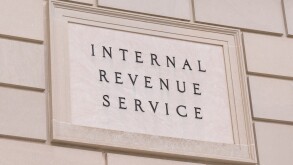Recent developments have increased the likelihood of New Zealand considering a tax on digital services. The UK's budget 2018 announcement on October 29 that it will introduce a digital services tax will likely be a catalyst for the government to take a close look at the merits of such a tax for New Zealand.
Existing measures
New Zealand has been, if not a leader, then certainly a fast follower in implementing measures to counter BEPS; and in some respects, New Zealand has gone further than the OECD has recommended. New Zealand's recent reforms have included interest limitation rules that to some extent cap allowable interest at rates below an arm's-length rate, and various new anti-avoidance and enforcement measures directed at large multinationals operating in New Zealand that go further than the OECD's BEPS-related recommendations.
At least one of the BEPS-related reforms that is already in force could affect multinational groups that provide digital services in New Zealand. The Taxation (Neutralising Base Erosion and Profit Shifting) Act 2018 enacted in June this year includes a new permanent establishment (PE) avoidance rule.
This rule can apply to large multinationals – that is, those with over €750 million ($849 million) of consolidated global turnover – that structure in such a way as to avoid having a PE in New Zealand. The rule deems a non-resident to have a PE in New Zealand if sales-related activities are carried out for it by a related entity under an arrangement that has a more than merely incidental purpose or effect of tax avoidance, and certain other requirements are met. The new rule is expressed to override the terms of double tax agreements that would otherwise relieve the non-resident's income from New Zealand tax.
Tax working group recommendation
In mid-September, the government's Tax Working Group (TWG), which has been considering the structure, fairness and balance of the tax system, released its interim report. The interim report suggests that the existing tax rules may be inadequate to address the taxation of the digital economy, but acknowledges that there is continuing disagreement between countries about the best way forward.
The TWG interim report discusses an equalisation tax (like that proposed by the EU Commission, which would be a 3% tax on gross revenues from certain digital services where local users play a major role in value creation – for example, advertising services) as an interim measure. The TWG concludes that it:
Supports New Zealand's continued participation in OECD discussions on the future of the international tax framework;
Recommends the government be ready to implement an equalisation tax if a critical mass of other countries (including Australia) move in that direction; and
Recommends that the government ensure, to the extent possible, that New Zealand's double tax agreements and trade agreements do not restrict New Zealand's taxation options in these matters.
What's next?
The TWG's recommendations will be finalised in February 2019. It is unlikely, however, that the government will wait until then before considering options for implementing a tax on digital services. Given the UK's announcement, and Australia's release of a discussion paper foreshadowing its consideration of the issues, the government will be considering New Zealand's options now, so as to be able to move quickly, especially if Australia proceeds to implement a new tax on digital services.













